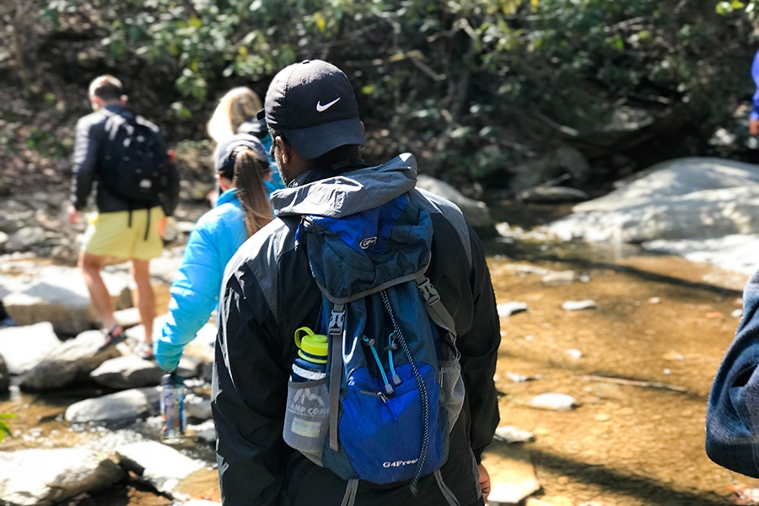Take a hike: Ten essentials to keep you safe on the trail
Jul 4, 2022

1, 2, 3—Hike! Taking a hike outdoors is a great idea. Not only is hiking a lot of fun (you never know what you’ll see), but it’s also a natural boost for both your body and your mind.
Hiking through a forest or along the river’s edge can be a refreshing change from urban walks. The air is cleaner, for one thing. And a long walk seems somehow shorter when you’re surrounded by the beauty of nature.
So what are other health benefits of hiking? Take a look.
A bonus for your body
Hiking offers up all the cardiovascular benefits of a brisk walk—and more. For example, hiking may:
- Lower your blood pressure.
- Decrease your heart rate.
- Boost your immune system.
- Strengthen abdominal (core) muscles.
- Increase your energy and stamina.
- Help you sleep better.
- Aid in weight loss.
Hiking over uneven ground may also improve your balance. But if you have any worries about staying steady, use a walking stick or trekking poles for added safety.
Medicine for your mind
Perhaps hiking’s biggest benefit for your mental health is a reduction in stress levels. If life has you feeling anxious, hiking is a great antidote.
Hiking also has been shown to reduce symptoms of depression and improve your overall sense of emotional well-being. There’s even some evidence that our minds perceive exercise to be easier when it takes place outdoors.
10 hiking essentials
Unlike a brisk walk around the neighborhood, hiking does require a little planning. Here are 10 things you should bring with you anytime you go for a hike:
- The right footwear. Buy a pair of hiking boots with good ankle support. (Be sure to break them in before you set off on a hike.)
- A map and compass. They can help you find lots of things — campsites, water and your way out if you get lost.
- Extra water. Not just because you’ll get thirsty, but also because hydration helps your muscles work better.
- Extra food. It could come in handy if your walk ends up being longer than you expected.
- The right clothing. Dress in layers so you can adjust to your comfort level. Depending on how far you’re going, rain gear also might help just in case the weather turns.
- Matches, a light and a whistle. The matches may come in handy for campfires if you’re going to be out late. A small flashlight or headlamp can help you read your map. Use the whistle to signal if you get lost.
- First aid kit. Prepackaged first aid kits are available at any outdoor store.
- Knife or multipurpose tool. Use it to repair any malfunctioning gear or remove splinters.
- Sunscreen, sunglasses and a hat. These are necessary any time of year, but especially when you’re hiking in sun-bright snow.
- A backpack. You’ll need something to carry all these essentials!
Headed into the backcountry? Learn how to prevent and prepare for an emergency when you're off the grid in Oregon's wilderness.

